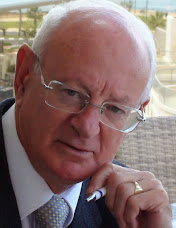When European countries
voluntarily surrender territory and control to a strong immigrant minority
that, unlike the once immigrant Jewish community, refuses to integrate, you
know that country is on its way to disastrous consequences and in Paris we
recently saw where these consequences can lead.
One of those consequences is
that, with rising anti-Semitism, a part of the intolerance of a growing
intransigent minority, Jews are fearful, unsettled, and a growing number are
packing their bags and leaving. This is a major loss to the host country as
expressed by French Prime Minister, Manuel Valls, who said, “If 100,000 Jews
leave, France will not be France.”
Politicians in other countries
threaten that Jews cannot remain Jewish and also be members of their nations.
This has been heard in Greece, Hungary, Sweden and other European countries.
In other cases, organizations and
politicians have attempted to drive a wedge between their Jews and Israel.
Perhaps the most notorious was the mayor of the Swedish town of Malmo who
threatened his Jews with abandoning their support for Israel during anti-Israel
demonstrations in his town. I named such a phenomenon, which has spread to
places such as Britain and Ireland, as the “Malmo Symptom.”
This is a new form of
anti-Semitism that targets the identity and sympathy of Jews to Israel, the
Jewish state. We saw this with the Tricycle Theater in London who refused to
host the UK Jewish Film Festival because the Jewish organizers were receiving
partial funding from the Israeli Embassy. Jews in Britain, it seemed, had to
decide if they were Jewish or pro-Israel. They couldn't be both.
Depressingly, the Malmo
Symptom showed itself in the Irish Holocaust Memorial Trust which demanded
that no mention of Israel or the Jewish state must be made in the upcoming
Holocaust Memorial ceremony in February. Fortunately this was rescinded
following widespread objections.
Jews in Europe feel a triple
danger. They feel vulnerable to the anti-Semitic threats and insults from
sections of the population, increasingly from the Muslim community. They feel
that their political representatives are more concerned with the growing Muslim
constituency and their pleas are ignored. They see this expressed in the
anti-Israel, pro-Palestinian stance of politicians at local and national level.
They are justified in viewing
this as a metaphor for their isolation within their own country. In both cases,
European politicians seem to favor the Muslim side against the Jews in their
words and resolutions. This increases the feeling of isolation and
vulnerability of European Jews. Both they and Israel see Europe turning against
them.
If European countries want to
keep their Jews they have to improve their relationship with Israel. To
understand the fears of Israel they need to understand the reluctance of Israel
to take dangerous steps for peace against a threatening, anti-Semitic and
violent Palestinian entity.
To understand the fears of their
Jews they need to understand their trepidation of a threatening, anti-Semitic
and violent Muslim population.
They have underestimated, or
closed their eyes, to the danger of a minority of their Muslim population and
their leaders who are radicalized and anti-Semitic, just as they closed their
eyes to the dangers of a minority of the Palestinian population and their
leaders who are radicalized and anti-Semitic.
The similarities of what both
European Jews and Israel are facing from incoherent and appeasing European
politicians are too stark to ignore. Both Israel and European Jews have reached
their tipping points.
Israel is not prepared to
continue the impossible task of peace talks with a rejectionist, anti-Semitic,
corrupt and violent adversary under unilateral pressure from a Europe that
gives the Palestinians a free pass and an inordinate amount of funding.
European Jews are not prepared to continue to quake in fear while their
politicians are incapable of protecting them and they hear their politicians
and media put mounting pressure on Israel, giving the Palestinians a free pass
as they do with their intolerant Muslim population. In both cases, the
one-sided approach of European countries has become too painful a burden to
bear. Jews and Israel are objecting to this bias.
It is time for European leaders
to reform their incorrect political thinking and give both Israel and their
Jews a break which must include their full support. They must review their
faulty policies. They must regain their domestic control, their political
equilibrium, and see both their Jews and Israel through fresh eyes. Both are
shining examples of enlightenment and liberal democracy and must be supported.
The concerns of both must be taken on board as never before.
If pressure needs
to be applied it has to be against the intolerant, rejectionist and violent
part of the community. In Europe it is the section of society that refuses to
integrate, rejects the norms of the host country and adopts violence. In the
case of the Israeli-Palestinian conflict it is the side that rejects solutions
and concessions, refuses to recognize the Jewish state and adopts violence.
Proof that both Israel and
European Jews see things differently from European politicians is evidenced by
the increasing number of Jews who are leaving their home countries in which
they feel growing despair and hopelessness. They share the concerns of Israel
in a dangerous Middle East and a failing and weakening Europe having
experienced it firsthand in the countries of their birth.
Despite this, they find hope and
protection in the strength and determination of the Jewish State of Israel, and
many are finding redemption in a new life in a country that welcomes them with
open arms.
Barry Shaw is a member of the
Knesset Forum on Israel’s legitimacy. He is also the special consultant on
delegitimization issues to The Strategic Dialogue Center at Netanya Academic
College, and the author of ‘Israel Reclaiming the Narrative.’ www.israelnarrative.com



No comments:
Post a Comment